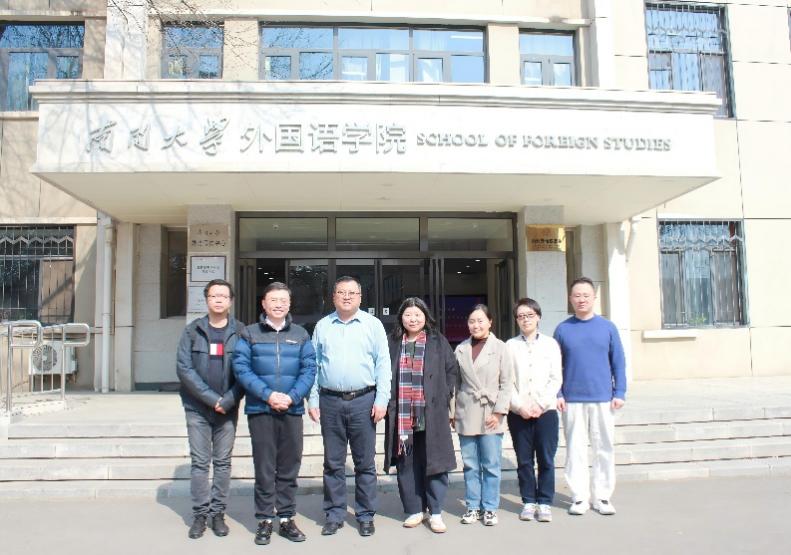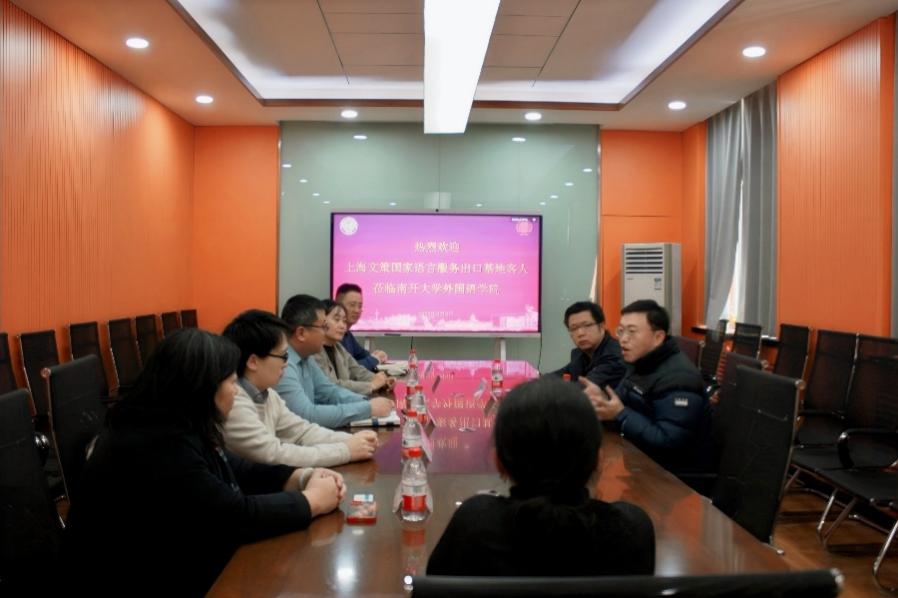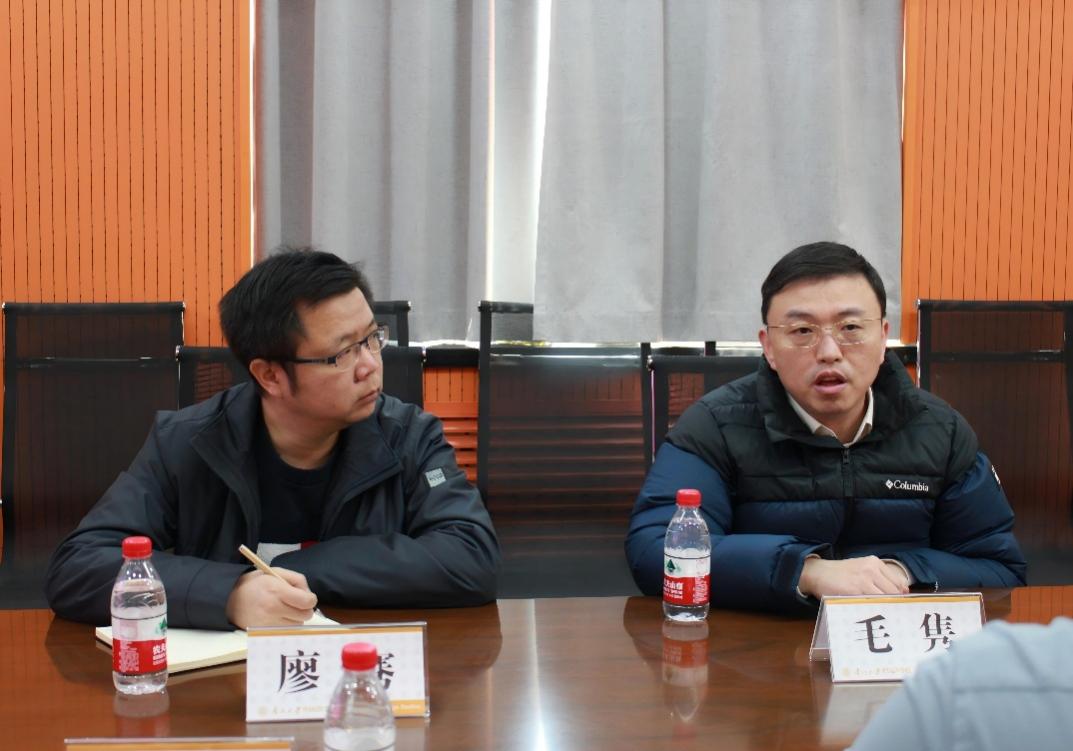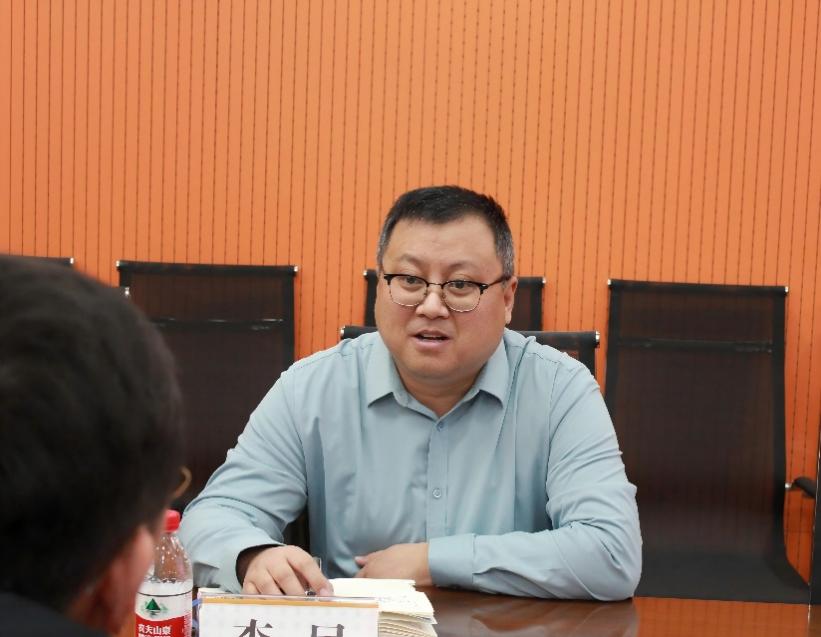On the morning of March 5, 2025, Dr. Mao Juan, General Manager of National Language Services Center (Shanghai Venture), and Liao Qian, Marketing Manager, along with their entourage, visited the School of Foreign Studies (SFS) of Nankai University to conduct research and exchange on cooperation between the two sides. Prof. Li Min, Vice Dean of SFS, and teachers of relevant language majors, including Associate Professor Yu Jun, Doctor Fu Shuhui, Doctor Xiao Yun, and Associate Professor Huang Mingtuo, as well as Ms. Wang Yuqian, Director of Graduate Student Office, attended the seminar.

At the symposium, Prof. Li Min extended a warm welcome to Dr. Mao Juan and his delegation, provided a detailed introduction to the MTI Education Center of SFS at Nankai University, and reviewed the distinguished history and current development status of the translation discipline there. He noted that the MTI education at Nankai University encompasses multiple language majors and is actively seeking authorization for the Doctor of Translation (DTI) degree, which boasts a strong foundation and significant advantages in cultivating translation talent.

Dr. Mao Juan then presented the basic situation and development of the service center. He noted that as a vital platform in the field of national language services, its primary focus is on supporting the government and facilitating foreign cultural exchanges, and it has formed close collaborative relationships with over 300 universities nationwide. This visit to Nankai University aimed to further explore the points of convergence between both sides in cultivating translation talents and fostering industry-university-research cooperation, so as to achieve complementary advantages and coordinated development.

The two sides engaged in a comprehensive exchange at the symposium, followed by a passionate discussion regarding the link between translation discipline education and enterprise talent demands. They agreed that enhancing communication and collaboration between universities and businesses is essential, and the talent training program should be refined to ensure that trained translation professionals effectively meet the actual needs of enterprises, providing high-quality talent for industry development. The symposium proved to be productive and established a solid foundation for future cooperation between both sides. They will continue to foster close communication, advance the implementation of collaborative projects, and work together to advance the nation's language services.




